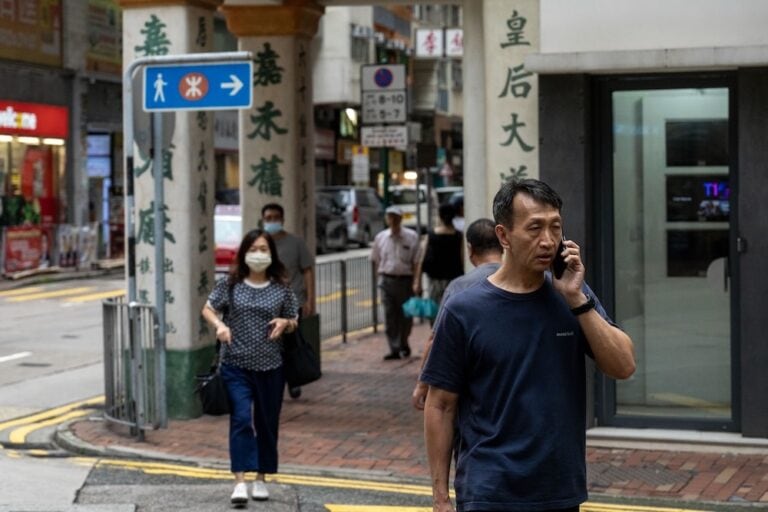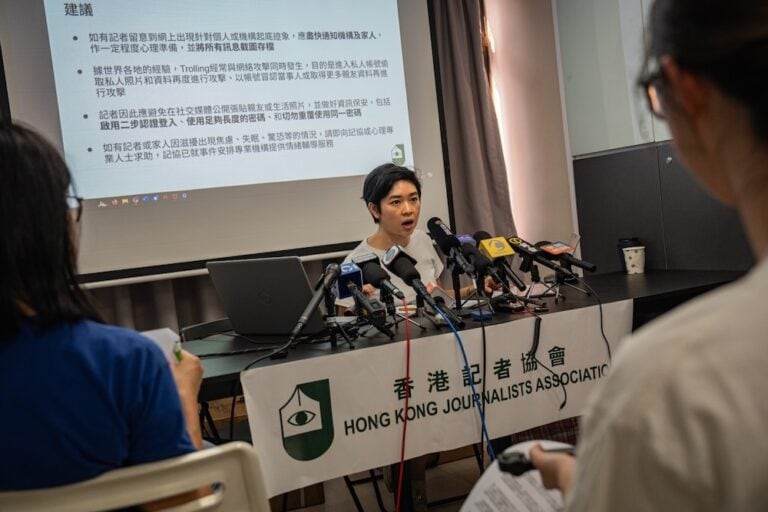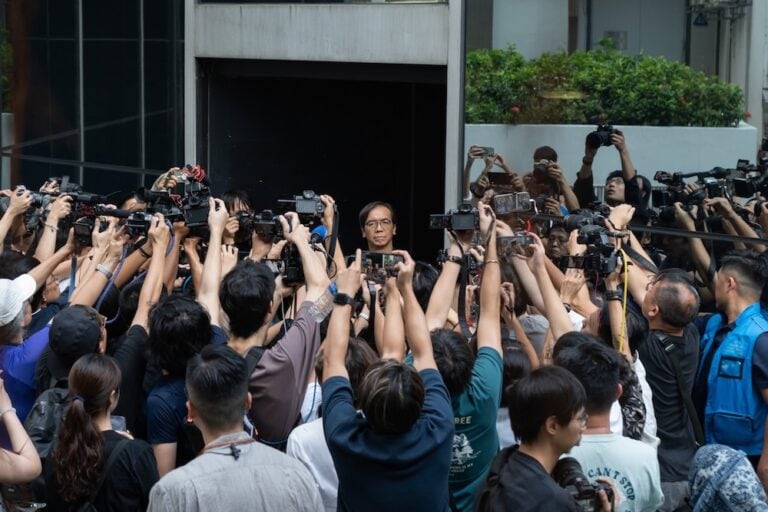While the HKJA holds that innocent people should be protected from harassment in the form of stalking, it is worried about the implications for legitimate journalistic activities and the way any new law could be abused to block genuine investigative activities by journalists.
(HKJA/IFEX) – 2 March 2012 – The Hong Kong Journalists Association (HKJA) submitted the following statement to the Constitutional and Mainland Affairs Bureau, in reference to the government’s consultation paper on stalking.
1. The Hong Kong Journalists Association (HKJA) notes with concern the government’s consultation paper on stalking released in December 2011. While the association holds that innocent people should be protected from harassment in the form of stalking, it is worried about the implications for legitimate journalistic activities and the way any new law could be abused to block genuine investigative activities by journalists.
2. It is obvious to us that press freedom will be severely restricted by the proposed new legislation on stalking. While performing their duties, journalists will repeatedly press for answers from interviewees if questions remain unanswered, wait around premises of interviewees who refuse to clarify points, and even follow individuals who may wish to hide from the public because they have engaged in malpractice. These legitimate journalistic activities, which are not always welcomed by interviewees who do not want to be held responsible to the public, can easily become criminal activities as defined by the Constitutional and Mainland Affairs Bureau (CMAB) in its consultation paper. In a recent case, an official with the North Korean consulate in Hong Kong called the police to “persuade” the press to leave the premises after they sought comments from the consul on the death of Kim Jong Il – a clear case of a news story which is in the public interest. Abusive use of anti-stalking legislation is therefore highly likely.
Useless Defence
3. The so-called defence of the pursuit of a course of conduct being “reasonable in the particular circumstances”, as stated in paragraph 3.38 (c), is in our view highly flawed. In our experience, targeted interviewees simply want to stop the media from reporting. They may not even take the case to court, which prevents a potential defendant from even using the defence.
4. Experience of the United Kingdom law – the UK Protection from Harassment Act 1997 (PHA) – also leads us to believe that any anti-stalking law in Hong Kong could easily be exploited. The government consultation document cites this law extensively, including its provision that conduct which is “reasonable in the particular circumstances” is a significant defence. We beg to differ. The reality is that the PHA’s use has widened to include newspapers and other publications.
5. Adrian Arbib, a photographer in the UK, was served with an injunction in 2007 under the PHA, barring him from taking photographs or videos of individuals and their vehicles involved in bulldozing 30 acres of land, filling in two lakes and dumping power station waste ash (i). The action was related to a protest against the plan – and the story was clearly in the public interest. Yet a judge allowed the serving of an injunction against the photographer, thereby limiting his ability to carry out his job.
6. The case was cited in an article written by a lawyer in The Guardian (ii). The London-based freedom of expression advocacy organization, ARTICLE 19, also made reference to this case in a report submitted to the 91st session of the United Nation Human Rights Committee. It noted that “the PHA is being transformed from an Act designed to prevent intimidation to a tool to intimidate protestors.” (iii) ARTICLE 19 further suggested that Britain should consider amending the law to prevent its application to genuine protests.
7. The Guardian article also notes that the PHA has been used as a replacement for libel claims, particularly where claimants are not interested in substantial damages, but want to stop defendants expressing themselves.
8. The article also pointed to one case in which a black woman, Esther Thomas, successfully brought a claim under the PHA against The Sun for publishing articles about her, which reported that three police officers had been demoted as a result of a complaint which she had made about their alleged racist remarks (iv). In another case, Bob Crow, chief of Rail, Maritime and Transport Workers Union, had used the law to limit personal attacks on him by the London Evening Standard.
( . . . )


